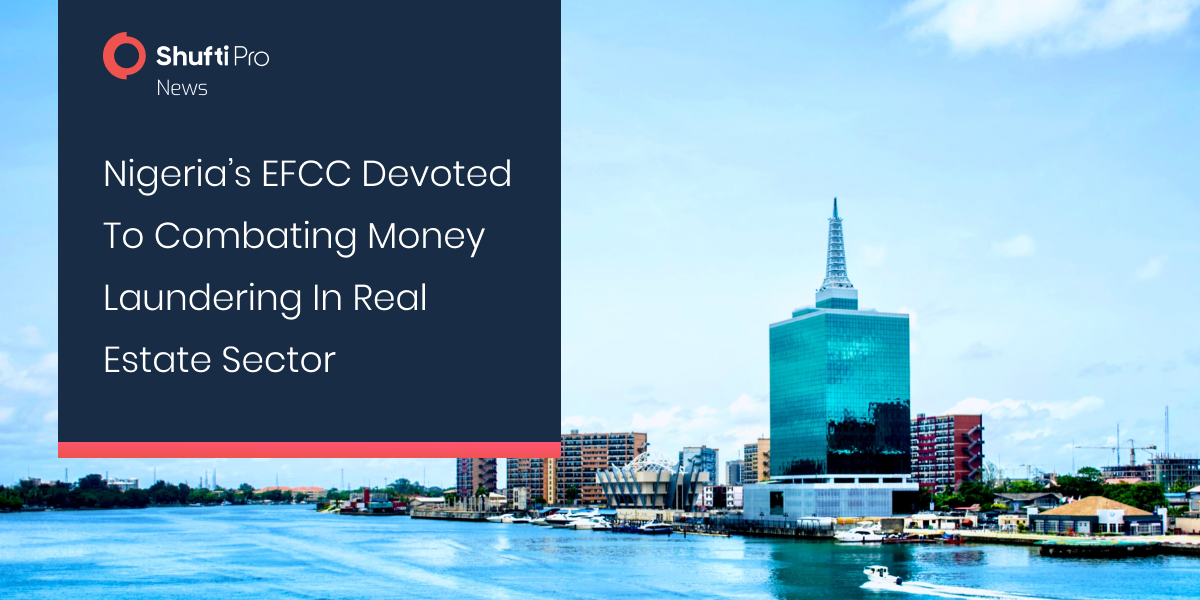Nigeria’s EFCC Devoted to Combating Money Laundering in Real Estate Sector

The Economic and Financial Crimes Commission chairman says that the agency is committed to fighting money laundering & terrorist financing in the real estate sector.
On Monday, April 25, the chairman of EFCC Abdulrasheed Bawa addressed a workshop organised by the Inter-Government Action Group against Money Laundering in West Africa (GIABA). He spoke about the agency’s commitment to combating money laundering and terrorism financing in the real estate sector of the economy.
According to him, a Nigeria Evaluation Report reveals that Nigeria’s real estate sector is the second most vulnerable to money laundering.
The report, Mr Bawa said, placed Abuja, Port Harcourt, Kano, and Lagos, among the major cities where the property is regularly purchased, mostly in cash and often in foreign currencies.
The chairman said no one has been questioning the legality of such transactions. In June 2021, he said that the commission would be going all out to investigate money laundering in the real estate sector, as he stated that billions of naira were being laundered through the sector.
A 2020 report by the Civil Society Legislative Advocacy Centre (CISLAC), a Transparency International (TI) affiliate, cities such as Abuja, Lagos, and Port Harcourt are Nigeria’s major black spots for high-level capital flights, with media and court reports pointing to the involvement of criminals running fraud syndicates, drug trafficking, and property buying and development.
The report explained that money launderers and criminals used third parties, professionals, family members, and close acquaintances to obtain high-value real estate.
It added that the buyers commonly opened accounts using pseudonyms to transfer illegal monies into high-value real estate purchases.
Suggested read: Nigerian Parliament Strengthens AML/CTF Laws for Real Estate Industry











